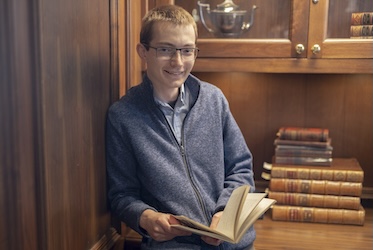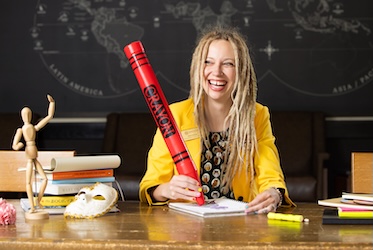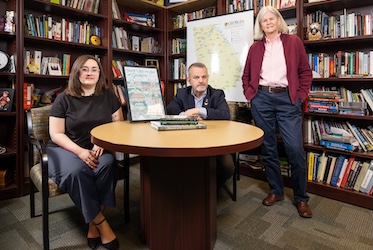
Kennesaw State professor’s research promotes digital literacy in English classrooms
KENNESAW, Ga. | Apr 21, 2021

English classes can help students analyze websites that target sales to teenagers, and English teachers can help students think critically about memes and their role in enflaming social divisions, according to Darren Crovitz, professor of English and English education at Kennesaw State University.
Crovitz, director of English education, has studied how to help future English teachers teach their students about the internet content they encounter every day. Crovitz teaches a class called Digital Media and Technology in English/Language Arts, which allows English education students to see how technology can be used meaningfully in the classroom. Students examine an array of web-based texts to uncover underlying advertising messages aimed at teens and young adults.
“The goal is to allow students to understand that ‘texts’ like websites don’t come together by accident, and digital mediums are designed for an advertising or marketing purpose,” Crovitz said.
A facet of his research has also centered around teaching students how to analyze memes, “sayings, stories, trends, or fads that are understood and recognized from a cultural perspective,” according to Crovitz. The study of memes allows researchers to track the spread of ideas through a population and the unforeseen consequences of that.
“Within the last four to five years, there’s been a convergence online in terms of the technology that’s available to us, especially on app-based smartphones,” said Crovitz. “We now have social media platforms that allow people to create and produce content very easily and, because of that, what is published online does not always go through the vetting process, leading to the creation of purposefully misleading content that polarizes and separates us.”
To teach about digital texts and the dangers of spreading false information, Crovitz has developed a four-step approach for students to consider what they care about and are likely to be emotionally triggered by online. By examining the ways that internet trolls impersonate other people, how websites pump out false information and how memes oversimplify information such as graphics and comparisons to create an emotional response, students work to create a text that responds to a falsity and tries to be truth-seeking.
To hear more about Crovitz’s research and expertise, listen to the “Thought Provoking” podcast hosted by KSU’s Norman J. Radow College of Humanities and Social Sciences.
– Josh Milton
Related Stories

First-year Kennesaw State student, author recognized as versed local historian

Kennesaw State student leverages Double Owl Pathways program to accelerate career path

Kennesaw State student uplifts community through film work, fellowship

Kennesaw State alumni, professor offer guide to Georgia's historic sites in new book
A leader in innovative teaching and learning, Kennesaw State University offers undergraduate, graduate, and doctoral degrees to its more than 47,000 students. Kennesaw State is a member of the University System of Georgia with 11 academic colleges. The university’s vibrant campus culture, diverse population, strong global ties, and entrepreneurial spirit draw students from throughout the country and the world. Kennesaw State is a Carnegie-designated doctoral research institution (R2), placing it among an elite group of only 8 percent of U.S. colleges and universities with an R1 or R2 status. For more information, visit kennesaw.edu.














